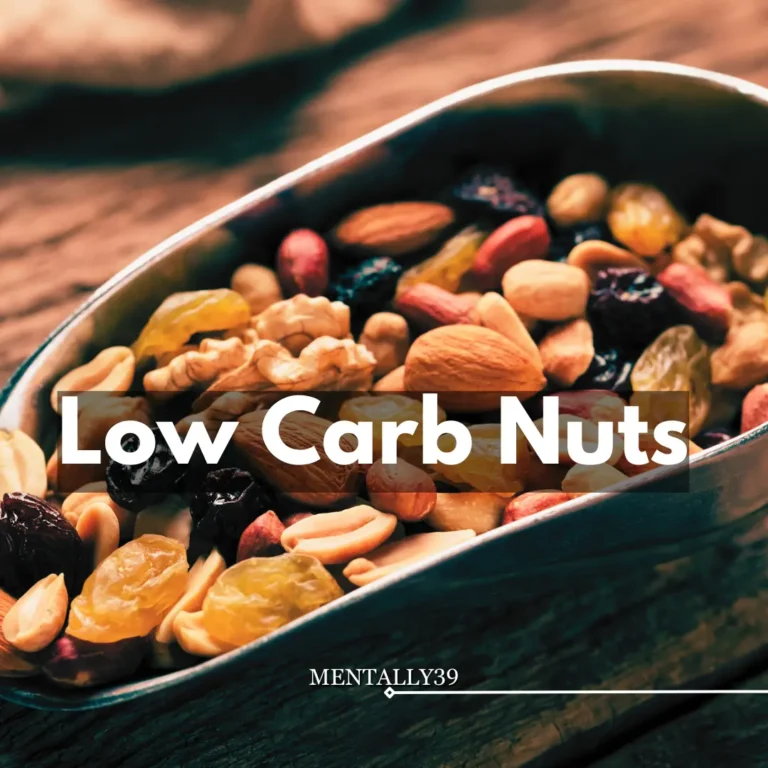Nutrition Articles
Nutrition: Understanding Your Body's Fuel
Facts About Nutrition and a Healthy Lifestyle
Welcome to our article on the facts about nutrition and a healthy lifestyle. In this article, we will explore the importance of nutrition, the essential nutrients for the body, the role of diet, and the impact of nutrient deficiencies. Nutrition is a fundamental aspect of our overall well-being, and understanding its significance can empower us to make informed choices about our diet and lifestyle.
Understanding Nutrition
To start, it’s important to understand the concept of nutrition before we dive into the specifics. Nutrition is the acquisition of food essential for maintaining health. It encompasses the consumption, assimilation, and use of nutrients within the body. Nutrition is vital for growth, progress, and general well-being. Adhering to dietary recommendations and maintaining a balanced diet is pivotal in upholding physiological processes and averting illnesses. Optimal nutrition enhances both physical and mental well-being.
What is Nutrition?
Nutrition involves all the elements of proper nourishment and healthy eating that the human body needs. This includes knowing the nutritional content of food, making wise food choices, and following dietary recommendations for good health. Healthy eating means having a well-rounded diet that gives the body the necessary nutrients like carbohydrates, proteins, fats, vitamins, minerals, and antioxidants. These nutrients are critical for the body to function properly, support important bodily functions, prevent illness, and strengthen the immune system.
Importance of Nutrition in a Healthy Lifestyle
The role of nutrition in maintaining a healthy lifestyle cannot be overstated. Consuming a diet rich in nutrients and low in unhealthy elements is essential for preventing health problems such as heart disease, high blood pressure, and obesity. A diet that lacks essential nutrients can weaken the immune system, making individuals more susceptible to infections and diseases. Following a healthy eating plan can strengthen our immune system, improve our cardiovascular health, and enhance our overall well-being.
Essential Nutrients For The Body
Now, let’s delve into the essential nutrients that our body requires to function optimally. These nutrients, known as macronutrients and micronutrients, play a crucial role in supporting our well-being.
Macronutrients
Macronutrients are nutrients required in large amounts by the body. They include carbohydrates, proteins, and fats. Carbohydrates provide energy and are found in foods such as grains, fruits, vegetables, and dairy products. Proteins are essential for building and repairing tissues, and sources include meat, poultry, fish, dairy, legumes, and nuts. Fats in sources like avocados, nuts, seeds, olive oil, and fatty fish provide energy, support nutrient absorption, and maintain cell membranes. A balanced intake of macronutrients is crucial for overall health and well-being.
Carbohydrates
Carbohydrates are the body’s primary energy source, fueling the brain, muscles, and body cells. They are essential for maintaining blood pressure, contributing to a healthy weight, and ensuring the proper functioning of various organs. Here are some key points about carbohydrates:
Dietary fiber, found in carbohydrates, aids in digestion, promotes heart health and helps control blood sugar levels.
Consuming a variety of complex carbohydrates, such as whole grains, fruits, and vegetables, ensures sustained energy levels.
Proper intake of carbohydrates provides the body with the necessary energy to perform daily activities and exercise routines.
Balancing carbohydrate intake is important for maintaining stable blood sugar levels and managing weight.
Proteins
Proteins are essential for the growth, repair, and maintenance of tissues in the body. Here are some key points about proteins:
Proteins are made up of essential amino acids, which the body cannot produce on its own and must be obtained through diet.
Amino acids, the building blocks of proteins, play a vital role in various bodily functions, including muscle growth and immune system support.
Consuming a variety of protein sources, such as lean meats, poultry, fish, dairy, legumes, and nuts, ensures adequate intake of essential amino acids.
Proteins help repair damaged tissues, support muscle growth, and promote overall health and well-being.
Fats
Fats are essential for energy, nutrient absorption, and maintaining cell membranes in the body. Here are some key points about fats:
Fats provide essential fatty acids, such as omega-3 and omega-6 fatty acids, which the body cannot produce on its own and must be obtained through diet.
Healthy fats, found in sources like avocados, nuts, seeds, olive oil, and fatty fish, are essential for cardiovascular health and disease prevention.
Balancing the intake of saturated, unsaturated, and trans fats is important for heart health and overall well-being.
Including healthy fats in moderation as part of a balanced diet supports energy production, nutrient absorption, and overall health.
Water
Although not a nutrient, water plays a vital role in maintaining overall wellness. Here are some key points about water:
Water is essential for numerous bodily functions, such as temperature regulation, digestion, and waste removal.
Adequate water intake is crucial for maintaining proper hydration, which is important for cognitive function, physical performance, and supporting healthy skin, joints, and organ function.
Dehydration can lead to health problems, including fatigue, impaired concentration, and constipation.
Consuming adequate water throughout the day is essential for promoting optimal health and well-being.
Micronutrients
Micronutrients, also known as vitamins and minerals, are essential for supporting various bodily functions and promoting overall health. Here are some key points about micronutrients:
Vitamins: Vitamins are organic compounds that play a major role in supporting the immune system, disease control, cardiovascular, and other critical bodily functions. Including a variety of vitamin-rich foods, such as fruits, vegetables, dairy, and fortified products, in the diet is vital for meeting our body’s vitamin requirements.
Minerals: Minerals, such as calcium, phosphorus, iron, zinc, and others, play a major role in supporting bone health, immune system function, and blood pressure regulation. Including food sources rich in minerals, like dairy products, leafy greens, nuts, and seeds, ensures we meet our body’s mineral requirements.
Antioxidants: Antioxidants, found in fruits, vegetables, and other plant-based foods, help protect cells from damage caused by free radicals. Consuming a diet rich in antioxidants has been linked to reduced inflammation, disease control, and improved overall health.
Minerals
Minerals are essential for supporting a range of bodily functions, including bone health and immune system support. Calcium, iron, magnesium, and potassium are crucial minerals found in foods like dairy products, leafy greens, nuts, and seeds. A balanced diet is important for meeting the body’s mineral needs and preventing health issues. Therefore, being mindful of mineral intake through a varied diet is empowering for optimal health.
Vitamins
Vitamins are essential organic compounds crucial for supporting the body’s immune system and overall health. Common vitamins, including vitamins C, D, B, and E, each have unique functions and are abundant in fruits, vegetables, dairy, and fortified foods. Adequate vitamin intake is vital for disease control, heart health, and other critical bodily functions, making it crucial to understand the role of each vitamin in maintaining a healthy diet and preventing health conditions.
Antioxidants
Essential for a healthy lifestyle, antioxidants such as vitamin C, vitamin E, and beta-carotene are crucial in protecting cells from damage caused by free radicals. Colorful fruits and vegetables offer a variety of these potent compounds, which are linked to lowering the risk of chronic diseases like cancer and heart disease. Additionally, antioxidants help reduce inflammation and promote healthy aging. By incorporating antioxidants into a balanced diet, individuals can enhance overall health and prevent diseases, thereby taking charge of their well-being.
Diet and Nutrition
Now that we understand the role of essential nutrients let’s explore the importance of diet and nutrition in maintaining a healthy lifestyle.
Healthy Eating Habits
Healthy eating habits are essential for maintaining a balanced diet and promoting overall well-being. Here are some key points about healthy eating habits:
Mindful eating, portion control, and balanced meal planning are essential aspects of healthy eating.
Including a variety of food groups, such as fruits, vegetables, whole grains, and lean proteins, supports a balanced diet.
Planning and preparing meals in advance can help individuals make healthier food choices and avoid processed foods.
Maintaining a regular eating schedule and staying hydrated are crucial to healthy eating habits.
Embracing a balanced, nutritious diet contributes to improved energy levels, physical health, and overall well-being.
Importance of Balanced Diet
A balanced diet, rich in essential nutrients, is vital for maintaining optimal health and preventing health problems. Here are some key points about the importance of a balanced diet:
A balanced diet provides the body with essential nutrients necessary for growth, development, and overall health. Consuming a variety of nutrient-rich foods, including whole grains, lean proteins, healthy fats, fruits, and vegetables, is essential.
Maintaining a balanced diet supports healthy weight management, reducing the risk of obesity and associated health problems.
A balanced diet plays a major role in preventing malnutrition, deficiencies, and chronic diseases like heart disease, high blood pressure, and type 2 diabetes.
Following dietary guidelines and incorporating a balanced diet into our lifestyle promotes longevity, vitality, and better health outcomes.
Role of Prebiotics and Probiotics
Prebiotics and probiotics are increasingly acknowledged for their role in promoting gut health and supporting the immune system. Here are some essential points to note about prebiotics and probiotics:
Prebiotics in foods like bananas, onions, and garlic serve as food for beneficial gut bacteria, promoting a healthy gut microbiome, digestion, and nutrient absorption.
Probiotics, either present in fermented foods or available as dietary supplements, introduce beneficial bacteria into the gut, improving gut health, immune system function, and overall well-being.
Consuming prebiotic- and probiotic-rich foods or taking supplements can enhance the balance of gut flora, contributing to better digestion, healthy immune function, and overall health.
Nutrient Deficiency and Its Effects
Let’s now examine the issue of nutrient deficiency and how it impacts our health and overall wellness.
Understanding Nutrient Deficiency
When the body lacks important vitamins, minerals, or other necessary nutrients, it experiences nutrient deficiency. This can result from poor diet, malabsorption, or specific health conditions. Identifying the factors that contribute to nutrient deficiency is crucial for addressing and preventing related health problems. Nutrient deficiency can affect physical, mental, and emotional well-being. Learning about nutrient deficiency enables us to make informed decisions about our health and diet.
Symptoms and Signs of Nutrient Deficiency
Recognizing the symptoms and signs of nutrient deficiency is crucial for early intervention. Here are some key points:
Nutrient deficiencies can appear as tiredness, lack of energy, hair thinning, skin issues, digestive problems, weakened immune system, and changes in mood.
Common nutrient deficiencies include vitamin D, calcium, iron, and vitamin B12 deficiency.
Regular health screenings and blood tests can help identify potential nutrient deficiencies and guide appropriate interventions.
Addressing symptoms and signs of nutrient deficiency through dietary modifications and supplementation can support overall health and well-being.
Being aware of the signs of nutrient deficiency enables individuals to take proactive steps toward optimizing their health.
Prevention and Treatment of Nutrient Deficiency
It is important to maintain optimal health by preventing and treating nutrient deficiencies. Here are some important points:
A balanced diet, including a variety of nutrient-rich foods, helps prevent nutrient deficiencies and supports overall health.
Dietary supplements can be used to treat specific nutrient deficiencies, but consulting a healthcare professional is essential to ensure proper dosages and avoid interactions.
Incorporating healthy eating habits, following dietary guidelines, and regularly monitoring nutrient levels can help prevent and treat nutrient deficiencies.
It is important to note that supplements should supplement, not substitute, a balanced diet and healthy lifestyle choices.
Proper nutrition plays a major role in preventing and treating nutrient deficiencies, ensuring our body’s needs are met.
Myths and Misconceptions about Nutrition
Let’s now address some common myths and misconceptions surrounding nutrition.
Debunking Common Nutrition Myths
There are several misconceptions about nutrition that can mislead individuals in making healthy food choices. Here are some common nutrition myths debunked:
Myth: “Healthy” food labels indicate nutritious products, yet processed foods can be high in additives, preservatives, and artificial ingredients.
Misconception: All calories are equal, but the quality of calories from nutrient-dense foods matters for overall health.
Myth: Low-fat products are the best diet choice, but they often contain high levels of sugar or salt to enhance flavor.
Misconception: All dairy products are essential, but calcium and vitamin D can also be obtained from non-dairy sources.
Myth: Supplements can replace a healthy diet. However, they should supplement, not substitute, balanced nutrition.
Facts vs Fiction: Nutritional Truths You Need to Know
Let’s distinguish between truth and falsehood in the realm of nutrition. Here are some essential nutritional facts to be aware of.:
Facts: Healthy eating, based on dietary guidelines, can reduce the risk of heart disease, high blood pressure, obesity, and other health problems.
Fact: Dietary guidelines recommend limiting salt intake to prevent high blood pressure and associated health conditions.
Fiction: While vitamin C supports immune health, it doesn’t prevent all illnesses, so having a balanced, nutrient-rich diet is essential.
Fact: Consuming whole grains, such as brown rice, provides essential nutrients necessary for a healthy diet.
Fact: Antioxidants, found in hazelnuts, legumes, and various fruits and vegetables, help fight inflammation and support overall health.
Are All ‘Healthy Foods’ Actually Good for You?
It is essential to carefully assess the nutritional value of foods marketed as “healthy.” Here are a few factors to take into account:
Not all products labeled as healthy align with dietary guidelines, as food processing can lead to nutrient loss and the addition of additives, preservatives, and artificial ingredients.
Some “healthy” foods, like fruit juices, can be high in sugar, potentially undermining their overall nutritional value.
Processed health foods, such as granola bars and low-fat snacks, can contain high levels of sugar, salt, and unhealthy additives that counteract their health claims.
In the United States, much salt is consumed through processed and packaged foods, which can contribute to high blood pressure and health problems.
It is important to read food labels, understand the ingredients, and make informed choices to incorporate truly healthy foods into our diet.
What are some common misconceptions about nutrition that people believe to be true?
Some common misconceptions about nutrition include the belief that all fats are bad for you, that skipping meals can help with weight loss, and that supplements can replace a healthy diet. It’s important to consult reliable sources and experts to separate fact from fiction when it comes to nutrition.
Conclusion
In conclusion, understanding nutrition and adopting a healthy lifestyle is crucial for overall well-being. Nutrition is vital in providing the body with essential nutrients for optimal functioning. Consuming a balanced diet that includes macronutrients such as carbohydrates, proteins, fats, and micronutrients like vitamins and minerals is important.
Prebiotics and probiotics also play a significant role in maintaining gut health. Additionally, it is important to debunk common nutrition myths and separate facts from fiction. While many ‘healthy foods’ are available, it is important to understand their true nutritional value. You can improve your health and lead a fulfilling life by prioritizing nutrition and making informed choices. Remember, small changes in your eating habits can greatly impact your overall well-being.








